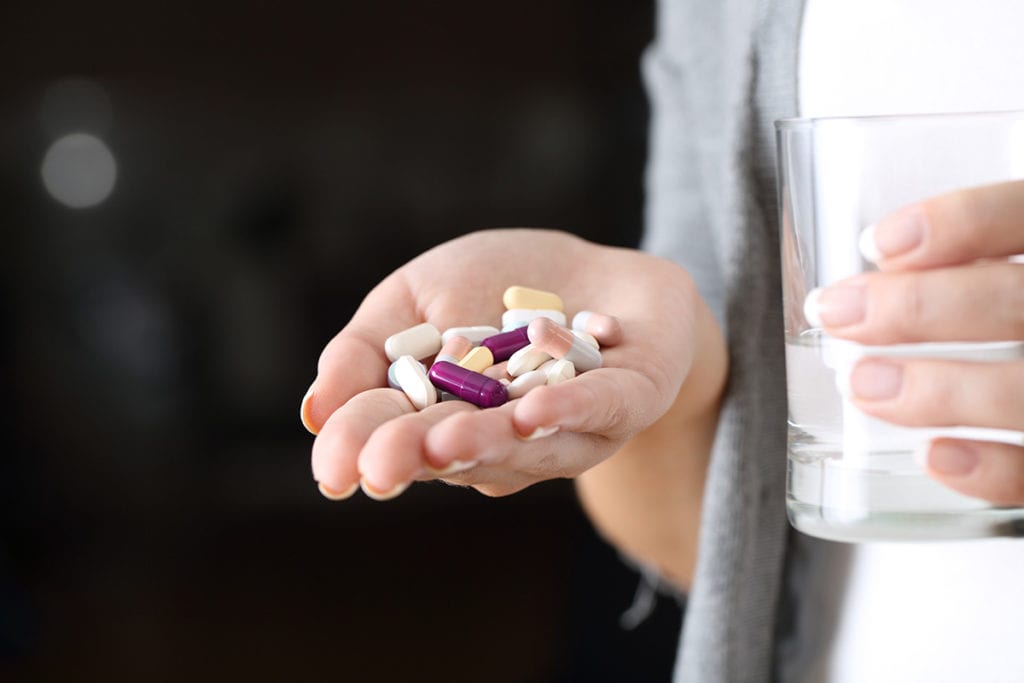As with many other mental and physical health conditions, early diagnosis and treatment of an addiction issue increase the chances of success. Yet catching addiction while it’s in the early stages of development requires you to know what behaviors indicate these issues. Not every person struggling with deadlines or canceling social events is dealing with addiction, but if someone in your life shows multiple signs of addiction, they likely need help. Find out what to look for when a loved one is facing addiction, and contact our addiction treatment and mental health treatment center
Mental Signs of Addiction
Using a drug on a routine basis changes a person’s way of thinking. The first signs of addiction you may notice from a friend or loved one are often mental. Distraction and a constant focus on something the person won’t explain often indicate obsessive thoughts about the drug in question. They may react strongly if questioned. People in all stages of addiction tend to deny that they have a problem. They often believe this is true. As the addiction progresses, the mental effects expand into difficulty following conversations and impulsive behaviors that aren’t linked to drug use.
Choosing a facility offering a cognitive behavioral therapy program helps the client relearn their mental patterns involving substances and stress. Instead of turning to drugs or alcohol when stress becomes unbearable, clients learn to deal with their emotions and pain with less destructive behaviors.
Emotional Issues
If you’re close to someone, emotional issues may cause you to wonder about addiction first instead. Early emotional signs of addiction include:
- Fights and arguments over trivial issues or things that weren’t problems until recently
- Obnoxious, silly, or even affectionate behavior that is unusual for the person in question
- Social withdrawal and difficulty interacting in the same ways they used to enjoy
- Flying off the handle at stressful events that used to make a much lower impact
- Loss of interest in hobbies, educational pursuits, or career growth
- Diverting attention to your problems or other issues within personal relationships
- Making excuses for their behavior and always coming up with a good story for arriving late or missing an event
- Minimizing the problem after it’s discovered to continue using substances in secret
As these issues grow with the development of the addiction, they get worse and worse. The emotional stress alone caused by addiction has ended many relationships and marriages and may require to get anxiety treatment or treatment for depression. Many people who struggle with addiction experience underlying mental health conditions. These conditions make it hard to deal with stress and emotions, leading to drug use as a coping mechanism. By learning how to manage their emotions and calm themselves down without turning to alcohol or drugs, people in recovery gain lifelong skills for staying sober and balanced.
Physical Side Effects of Drug Use
Some drugs cause relatively few physical side effects in the earliest stages of use, but all drugs eventually affect the user’s physical health. Someone who once looked healthy and tan may become pale and sallow as they trade outdoor and physical activities for indoor drug use. You may notice someone binging on food if they’ve used marijuana or eating very little over the course of the day if they’re using methamphetamine or heroin. Various drugs may make a person’s eyes bloodshot and dilated, slow down or speed up their reaction times, or cause them to hallucinate sights and sounds. If they lose access to drugs, they may develop a fever, shake violently, or even experience medical emergencies like seizures. None of these physical signs of addiction are enough alone to indicate a problem, but when they appear together, it’s commonly a sign of a problem.
Concerned that you or a loved one is starting to show the signs of addiction? Get help in a supportive environment by choosing Promises Behavioral Health. We offer individual treatment plans personalized to your condition and history. Call us today at 844.875.5609.

